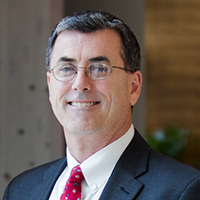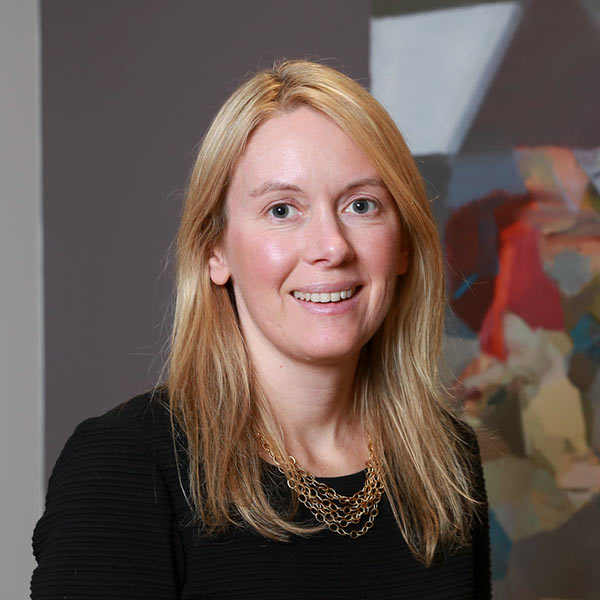The United Nations Sustainable Development Goals provide a framework for addressing global challenges related to poverty, inequality, climate change, environmental degradation, peace and justice. Achieving them was never going to be straightforward—and that was before we faced a global pandemic, economic crisis, and the manifestation of centuries of racial violence and injustice. Investors have a particular role to play in pulling levers that make a difference.
Brown Advisory’s CIO of Sustainable Investing, Erika Pagel, sits down with Lynelle Cameron of Autodesk and Brian Rice of CalSTRS, who are each focused on creating long-term sustainable impact through resilience and engagement.
Listen and subscribe to our podcast from your mobile device:
Episode Introduction
Erika Pagel: When you look around the world right now it's impossible not to be struck by how complex and interconnected it is.
A virus emerges in Wuhan, China. And within months, much of the world is in lockdown.
George Floyd is tragically killed by police in Minneapolis. And within days, streets across the United States are filled with protests.
Complexity and interconnectedness have certainly been hallmarks of 2020. And they have been hallmarks of the challenges we face when we think about making an impact as investors. I'm Erika Pagel. I’m a partner at Brown Advisory and our Chief Investment Officer of Sustainable Investing.
I’ve been working with clients to invest for impact for more than a decade. As we think about sustainable investing and making an impact through our investment dollars, it has become more and more clear that there is no single lever that you can pull to get a result.
In public health, racial justice or climate change, it's systems and networks that matter. We have to consider what business can do; what investors can do; what civil society can do; what we can do as individuals to make a difference.
Guests

Lynelle Cameron
Vice President, Sustainability; CEO, Autodesk Foundation
Lynelle Cameron has over 20 years of experience helping large and small companies capitalize on market opportunities related to sustainability and climate change. Her career reflects a demonstrated track record leading large-scale transformative work spanning the nonprofit, public and private sectors. Cameron is currently Vice President of Sustainability at Autodesk and CEO of the Autodesk Foundation. She leads a team transforming the design, manufacturing and construction industries to capitalize on the business opportunities of a low-carbon economy. Through the Autodesk Foundation, she has invested over $40 million in entrepreneurs and innovators who are designing solutions to climate change and inequality. Under her leadership, Autodesk has won numerous awards for sustainability, climate leadership and philanthropy. Cameron is proving that companies can do well by doing good – in ways that strengthen brand reputation, recruit and retain the next generation of employees, and deliver financial results to shareholders. This year, Autodesk was ranked #5 most sustainable company in the world by Corporate Knights and #10 by Barron's. A cultural anthropologist by training, Cameron has lived and worked in many parts of the world at the intersection of conservation and economic development with WWF, TMI, and NOLS. Cameron brings her expertise in strategy, governance and management to the Boards of Innovators International, CEH, UC Berkeley CRB, Biomimicry 3.0. She is also the Executive Sponsor of the Autodesk Women’s Network, an organization that aims to bring gender diversity to every decision-making table.
Brian Rice
Portfolio Manager, CalSTRS
Brian Rice is a portfolio manager in the CalSTRS Sustainable Investment and Stewardship Strategies unit and has been leading sustainability efforts at CalSTRS for over 15 years. He is responsible for the CalSTRS sustainable manager portfolio, a $2.2 billion externally managed public equity strategy that employs fund managers incorporating ESG factors into their investment portfolio construction and management. Rice also leads the CalSTRS Transition to a Low Carbon Economy initiative, a cross-asset class effort focused on managing physical and transitional investment risks, and implementing investment opportunities associated with climate change. Rice serves on the advisory board of the Climate Bonds Initiative and the Strategic Investor Initiative, and on the advisory committee of the Ceres Water Hub. He received an M.B.A. from the U.C. Davis Graduate School of Management and a bachelor’s degree in economics-business from UCLA.
Host

Erika Pagel
CIO of Sustainable Investing, Brown Advisory
Erika is a partner, a member of the Executive Team, and serves as chief investment officer of sustainable investing and as a portfolio manager in the Boston office. She manages balanced accounts for private and institutional clients. Erika has worked in the investment management industry since 1996. Prior to Brown Advisory, she was an investment advisor at Silver Bridge Advisors. Erika started her career at MFS Investment Management before working in sell-side Equity Research for eight years following large cap pharmaceuticals, household products, consumer and retail sectors at Schroder & Co and then UBS Investment Bank. More recently, she was an analyst following consumer and retail companies at a hedge fund, Balyasny Asset Management. Over the past eight years, a focus of Erika’s has been researching investment options in the sustainability industry and helping clients build portfolios that are aligned with their mission and values.
Background Reading
